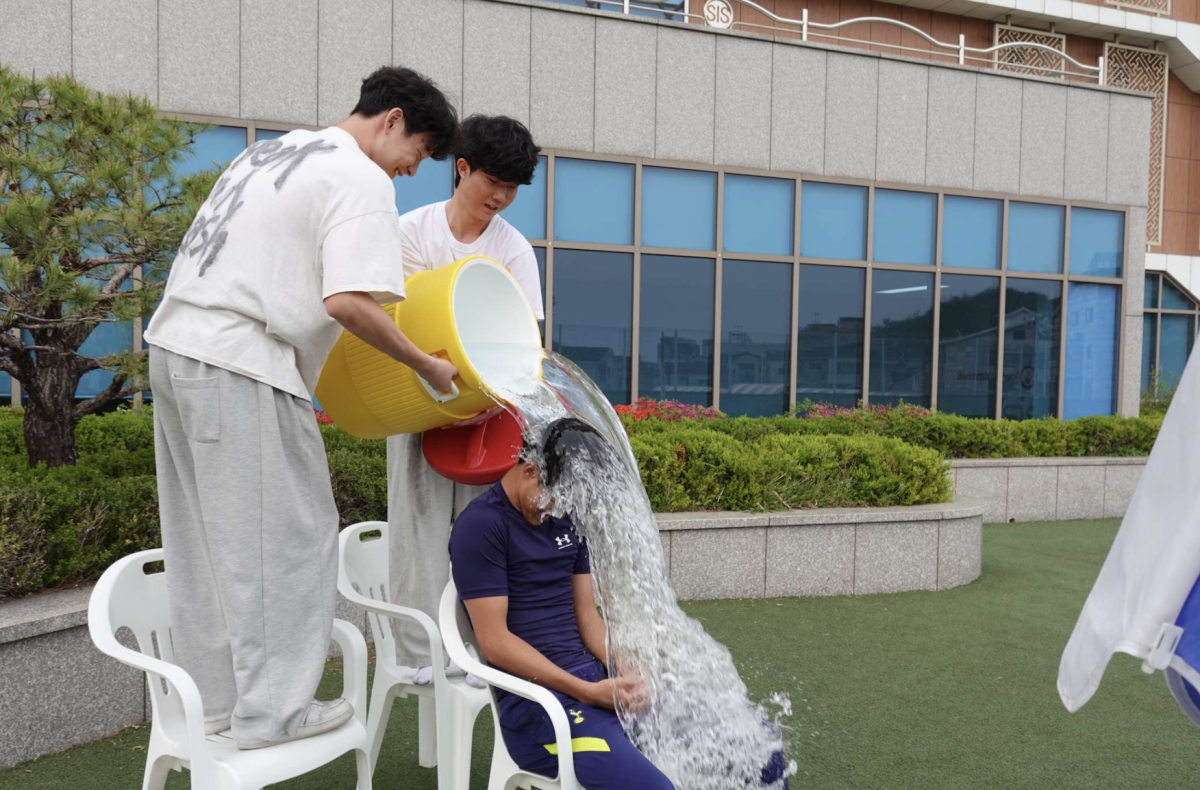During passing periods and after school, groups of students gather with phones ready and buckets filled to the brim with ice water. A student steps forward, a countdown begins, and within seconds, freezing water comes crashing down. Laughter follows, along with cheers, and occasionally a startled shriek from the cold.
This is the USC Mind Challenge, a mental health awareness campaign that began at the University of South Carolina (USC) and has since captured the attention of celebrities, influencers, and students across the United States—and now, even Korea. At SIS, the challenge has quickly gained momentum, with students filming ice bucket videos at the soccer field and greentop, tagging friends, and nominating others to keep the chain going.
The concept is simple: dump ice water over your head, post the video on social media with the hashtag #SpeakYourMIND, and nominate a few others to do the same. But behind the scenes of the fun of the viral challenge, the cold water and short clips are a message about mental health and a part of a growing effort to bring awareness to emotional well-being, especially among students.
Still, many participants admit they did not fully know what the challenge was for.
“I understood it was about mental health, but I didn’t know the full story behind it or how it started. My friend nominated me, so I just joined in,” Noah Ko (11), participant in the challenge, said. “It seemed like a positive and entertaining thing, so I wanted to be part of it.”
As the challenge circulates on social media, its original message can get lost in the entertainment. While the USC Mind Challenge takes inspiration from the viral 2014 ALS Ice Bucket Challenge, its purpose is distinct. Rather than fundraising for a specific disease, this movement aims to normalize conversations about mental health, especially among younger generations. However, the gap between the trend’s popularity and its meaning is part of what makes the challenge easy to overlook.
At SIS, students often prepare their videos casually, filling up buckets in bathroom sinks. Some bring towels and spare clothes, while others walk around dripping wet until their next class. The informality of it all makes the challenge approachable and fun, but also leaves room for the meaning to get diluted. Yet for many students, even those who did not initially understand its origins, participating has sparked more awareness. Seeing a peer take on the challenge often leads to more conversations about what it is, where it started, and why it truly matters.
The challenge has also encouraged students to be more mindful about how they engage with trends online. As the videos compile on Instagram stories and TikTok feeds, the repetition helps keep the message alive. Some students have even begun sharing posts on their story from the official USC Mind Instagram account to help spread awareness about the challenge’s original purpose.
Unlike other trends that disappear soon after their initial spark, the USC Mind Challenge has prevailed because it combines action with intention. It allows students to participate in something fun while simultaneously recognizing that stress, anxiety, and emotional challenges are a part of everyday life, especially in high school.
Though not formally organized by any SIS club or school department, teachers have shown quiet support, allowing students to carry out the challenge as long as it is safe and respectful.
“The ice bucket challenge is designed to bring awareness to a good cause,” Chris Del Vecchio, High School Vice Principal, said. “Students who participate with that in mind can contribute to that cause, but it is important that no one is forced to participate because that would undermine the benefits of the initiative of the cause.”
As the movement continues to grow beyond the United States and into international schools like SIS, the campaign seeks to broaden the audience for mental awareness. Mental health is no longer a topic confined to counselor meetings. It is showing up in between classes, on the soccer field, and in cold buckets of water.
The USC Mind Challenge may not fix everything, but it is a small way students are choosing to speak up.


